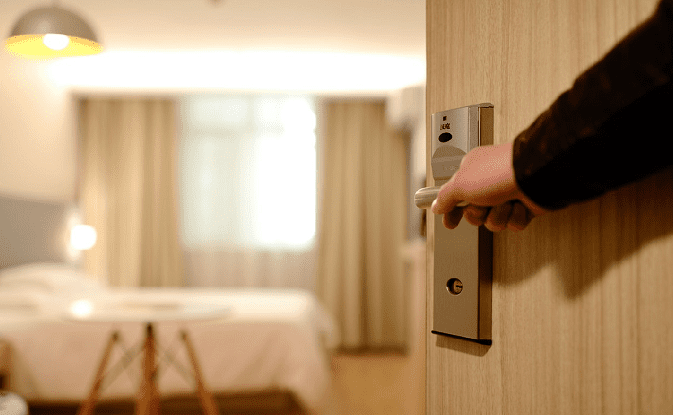
As a hotel owner, there are a lot of responsibilities that require your attention: The safety of your staff, the comfort and safety of your guests, and the other thousand little details that require your attention on a daily basis. Maintaining a high level of duty of care towards your customers ensure your hotel guests are not only comfortable, but safe as well.
Unfortunately, there have been several negative news stories recently about hotel owners breaching their duties to guests, harming the reputation of travel and hospitality. These news stories include lawsuits related to privacy as well as safety and security.
One of the most remarkable is a $100 million class-action lawsuit that was recently filed against Marriott Hotels after the data of as many as 500 million guests was hacked. This data breach, which occurred in November 2018, was the second-largest in history.
A smaller, but no less terrifying lawsuit comes from the family of three sisters who were bludgeoned in a London hotel in 2014. The sisters all survived, but had catastrophic injuries that were a direct result of lax hotel security. They’re currently suing the hotel due to the “haphazard” security that contributed to the attacker being able to reach their room.
In both of these lawsuits, the complainants are alleging that the hotel owners failed to exercise reasonable care, which contributed to the injuries that they suffered. As a hotel owner, it’s integral to know about the duties of reasonable care that you owe to guests, and how you may be held accountable through a negligence claim.
What does it mean to exercise reasonable care?
The legal phrase ‘breach of duty’ seems self-explanatory, but it does have plenty of legal nuances. Breach of duty is legally defined as whatever steps any prudent and reasonable person would take in any situation. The law does not hold management or hotel ownership liable for events that are entirely out of their control, such as a tornado or earthquake, but it does require that they use reasonable foresight to mitigate personal damage and loss of
property.
If hotel owners and management fail to exercise their reasonable duty of care, injured and inconvenienced guests may file a negligence claim.
Common Types of Negligence Claims Filed Against Hotels
In order to successfully prove negligence, a hotel guest must show that management and hotel ownership did not provide the care necessary to prevent the incident from happening. They must also draw a clear line between what the hotel did (or did not) do, and the negative consequences that affected them. Here are some of the most common types of negligence claims filed against hotels.
Slips and falls
Guests who are injured on wet or dirty floors must prove that the hotel staff did not take reasonable steps to prevent this from happening, such as placing warning signs.
Security
Hotel security is of paramount importance. It’s common for guests who have had possessions stolen or had an altercation on hotel grounds to claim that the hotel did not exercise reasonable care regarding their security protocols.
Infestation
In order to file a claim for negligence against a hotel for an infestation, the complainant must prove that the hotel knew about the infestation, and did not take the necessary steps to prevent it from spreading and affecting guests.
Food and Beverage-related Illnesses
Any hotel serving food and drinks on-site must ensure that these consumables are handled safely. Any guest who becomes ill as a result of improper food and drink handling may be able to make a claim against the hotel.
Responsible serving of alcohol
Anyone who runs an establishment that serves alcohol must ensure that service and bar staff are trained to recognize signs of overconsumption. If someone is over-served and goes on to injure themselves or others, the hotel may find themselves at the receiving end of a legitimate negligence claim.
Lack of warning of unsafe conditions
A key element of reasonable care is providing clear and visible warning signs to patrons so that they can exercise caution in conditions that are temporarily unsafe. These include the bright yellow signs warning against wet floors, or notices displayed when accessibility equipment like elevators and escalators are out of order
Failure to protect guests’ privacy or personal information
Guests who give their sensitive personal information to hotels should be able to feel confident that it won’t be accessed by malicious hackers. As we saw in the Marriott Hotels data breach, this isn’t always the case.
How to Ensure You Maintain a Duty of Care
In order to avoid negligence claims from patrons and guests, hotel management and ownership must focus on ensuring they maintain a reasonable duty of care. Once you get away from the legal definition, this simply means adhering to current industry standards and best practices. Hiring excellent staff, and providing them with the training and tools they require goes a long way to ensure you never need to handle legitimate negligence claims. Here are some tips for ensuring that you always maintain your duty of care.
Hire the Right Staff
An effective hiring process will show you when potential staff members are serious and attentive, and when they simply aren’t able to handle the responsibility of working in your hotel. Make sure you’re doing your due diligence when hiring, including checking multiple references, and scouting using the best websites and hiring resources available.
Provide Proper Onsite Security
Guests who are spending time in your hotel should have a reasonable expectation of their safety, including in common areas. Proper security protocols should respond to any situation that may affect the hotel, including intruders, safety from the elements, or even wild animals-depending on the location.
Invest in Data Security
The Marriott Hotel data breach emphasizes the need for the hospitality industry to review its IT structures. It is important to work with an IT firm or cybersecurity consultancy to make sure you have proper safeguards in place against hackers.
Have a Risk Management Plan in Place
Mitigating risk and putting customers at ease should be the highest priorities for hotel management and ownership. Risk management can be anything from regular training sessions with key staff or ensuring that your electronic waivers for spa services, hotel pool use, or kids’ care are simple, easy to use, and even easier to understand. All hotels should develop and regularly review a risk management plan to ensure they are
lowering the risks of potential lawsuits.
Investing in Customer Safety is Also An Investment in Loyalty
Hotel customers have more choice than ever and demand both a high level of customer service and a focus on their safety. Your hotel should feel like a true home away from home, free of the concerns of issues that could potentially cause harm. Lawsuits aside, it only takes a few negative reviews online to severely impact your outlook for new and return guests. Even the smallest concern can dock you points with today’s discerning consumer. Investing the time and resources to mitigate your risks, ensuring your staff is well-trained, and maintaining the safety of your facilities all contribute to a happier hotel experience.
By Justin Li
Justin Li is the co-founder and CEO of Aries App inc., the developer of the electronic waiver signing solution WaiverForever.









